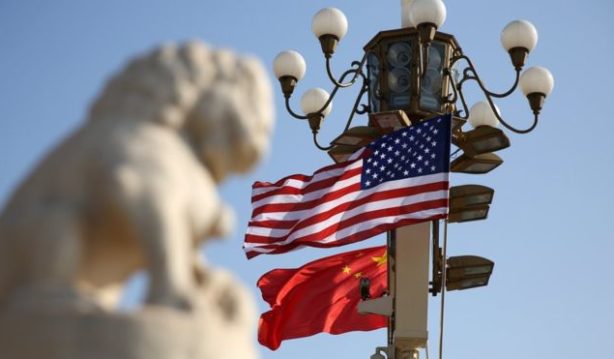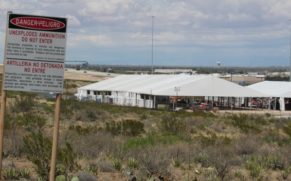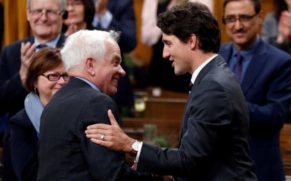US and Chinese officials have been holding a first day of talks in Beijing aimed at resolving their damaging trade dispute.
Last year, both countries imposed billions of dollars’ worth of tariffs on each other’s goods.
The two-day talks mark the first formal meeting since they agreed to refrain from any further tariffs for 90 days.
The meeting comes amid rising concern about the impact of trade tensions on the global economy.
The US delegation is led by Deputy US Trade Representative Jeffrey Gerrish.
So far, neither side has given any indication of how the talks are going.
However, a Chinese foreign ministry spokesman told reporters that his country had “the good faith, on the basis of mutual respect and equality, to resolve the bilateral trade frictions”.
While the temporary truce has provided some relief, there is scepticism over the possibility of a breakthrough at the meeting in Beijing.
“There are concerns about how far apart the two sides still are,” Julian Evans-Pritchard, economist at Capital Economics said.
“The main sticking point is going to be on industrial policy and intellectual property rights.”
What’s on the agenda?
Officials from China and the US were expected to cover a range of thorny issues.
The White House said in December the two sides would negotiate “structural changes with respect to forced technology transfer, intellectual property protection, non-tariff barriers, cyber intrusions and cyber theft”.
The US says China’s “unfair” trade practices have contributed to a big trade deficit and accuses China of intellectual property theft.
Like other countries in the West, it is also concerned about the risks that Chinese companies may pose to national security.
Many increasingly see the trade war as a battle for global leadership between the world’s two largest economies.
The stakes are high. Failure to achieve a deal could see both countries resume taxing one another’s goods.
US President Donald Trump said last year that tariffs on another $267bn (£209bn) of Chinese goods were “ready to go”.
What has happened in the trade war?
The US has hit $250bn of Chinese goods with tariffs since last July, covering a wide range of consumer and industrial items.
China has accused the US of starting “the largest trade war in economic history” and has retaliated by imposing duties on $110bn of US products.
The trade war has unnerved financial markets, risks raising costs for American companies and is adding pressure to a Chinese economy which is already showing signs of strain.
Ahead of the meeting in Beijing, President Trump said that weakness could help negotiations.
“I think China wants to get it resolved. Their economy’s not doing well,” he told reporters on Sunday.
“I think that gives them a great incentive to negotiate.”










